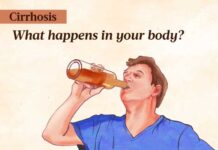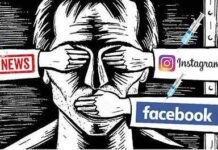
MRI scans revealed that women who felt socially isolated had more activity in certain brain regions that regulate food and sugar cravings.
Key Takeaways
- A recent study looked at brain scans of women shown abstract images unrelated to food or images of different sweet and savory foods.
- Those who felt the most socially isolated had the most activity in brain regions connected to cravings for sugary foods.
- The study suggests that building new social connections could lead to healthier eating habits.
Loneliness isn’t just a mood issue: A new study suggests that people who consider themselves socially isolated may also have more intense cravings for sugary foods as evidenced by scans of brain activity.[1]
This research, published in JAMA Network Open, builds on earlier investigations linking loneliness to poor mental health, cognitive decline, weight gain, and obesity-related chronic diseases like type 2 diabetes. Despite abundant evidence for these connections, scientists still don’t have a clear picture of the underlying causes, says senior study author Arpana Gupta, PhD, an associate professor and director of the G. Oppenheimer Center for Neurobiology of Stress and Resilience at the University of California in Los Angeles.
“While it is established that obesity is linked to depression and anxiety, and that binge eating is understood to be a coping mechanism against loneliness, I wanted to observe the brain pathways associated with these feelings and behaviors,” Gupta says.
To do this, Gupta and her team surveyed 93 women about their social connections, feelings of loneliness or isolation, body weight, and eating behaviors. Scientists then used magnetic resonance imaging (MRI) scans to see how participants’ brains responded when they saw abstract images unrelated to food or images of different sweet and savory foods.
The study found that, overall, participants who reported higher levels of social isolation were also more likely to have intense food cravings, unhealthy diets, uncontrolled eating, and symptoms of anxiety and depression.
MRIs also revealed that participants who felt the most socially isolated had the most activity in brain regions thought to play a role in responding to cravings for sugary foods. The loneliest participants also had reduced activity in brain regions that play a role in self-control related to eating behaviors.
“Social isolation can cause food cravings similar to the cravings for social connections,” Dr. Gupta says. “We show evidence for the fact that our social bonds are key in regard to how we eat unhealthy foods — especially highly calorie-dense foods and sweets.”
Study Suggests New Ways to Reduce Sugar Cravings
The study has certain limitations, including its small size and its reliance on participants to accurately recall and report details about their eating behaviors, mood, and health.
Even so, the results provide fresh evidence to suggest that our mood influences our response to food, says Lu Qi, MD, PhD, a professor and director of the obesity research center at the Tulane University School of Public Health and Tropical Medicine in New Orleans.
“The study finds brain reactivity particularly to sweet foods, which explains maladaptive eating behavioral changes among socially isolated people,” says Dr. Qi, who wasn’t involved in the research.
The good news in these findings is that people might be able to influence their eating behaviors by making changes in their social lives to reduce feelings of isolation, Qi says.
Looking for ways to build social support systems is a good way to start, Gupta says. This might mean pursuing a hobby, volunteering, joining clubs, or doing anything else that might help increase interactions with other people. Over time, this might help change how the brain responds to food cues in ways that make it easier to resist sweets.
“We can also use holistic mind-body interventions to normalize these alterations in the brain through meditation, journaling, and stress-reduction exercises,” Gupta says.
Being aware that sugar cravings are connected to social isolation may also help people feel like they have the ability to change their eating patterns, Gupta adds. “Knowing that being lonely makes you crave those high calorie foods — especially sugars — is empowering,” Gupta says.
Sources:
- Zhang X et al. Social Isolation, Brain Food Cue Processing, Eating Behaviors, and Mental Health Symptoms. JAMA Network Open. April 4, 2024.
Important Notice: This article was originally published at www.everydayhealth.com by Lisa Rapaport where all credits are due.
Disclaimer
The watching, interacting, and participation of any kind with anything on this page does not constitute or initiate a doctor-patient relationship with Dr. Farrah™. None of the statements here have been evaluated by the Food and Drug Administration (FDA). The products of Dr. Farrah™ are not intended to diagnose, treat, cure, or prevent any disease. The information being provided should only be considered for education and entertainment purposes only. If you feel that anything you see or hear may be of value to you on this page or on any other medium of any kind associated with, showing, or quoting anything relating to Dr. Farrah™ in any way at any time, you are encouraged to and agree to consult with a licensed healthcare professional in your area to discuss it. If you feel that you’re having a healthcare emergency, seek medical attention immediately. The views expressed here are simply either the views and opinions of Dr. Farrah™ or others appearing and are protected under the first amendment.
Dr. Farrah™ is a highly experienced Licensed Medical Doctor certified in evidence-based clinical nutrition, not some enthusiast, formulator, or medium promoting the wild and unrestrained use of nutrition products for health issues without clinical experience and scientific evidence of therapeutic benefit. Dr. Farrah™ has personally and keenly studied everything she recommends, and more importantly, she’s closely observed the reactions and results in a clinical setting countless times over the course of her career involving the treatment of over 150,000 patients.
Dr. Farrah™ promotes evidence-based natural approaches to health, which means integrating her individual scientific and clinical expertise with the best available external clinical evidence from systematic research. By individual clinical expertise, I refer to the proficiency and judgment that individual clinicians acquire through clinical experience and clinical practice.
Dr. Farrah™ does not make any representation or warranties with respect to the accuracy, applicability, fitness, or completeness of any multimedia content provided. Dr. Farrah™ does not warrant the performance, effectiveness, or applicability of any sites listed, linked, or referenced to, in, or by any multimedia content.
To be clear, the multimedia content is not intended to be a substitute for professional medical advice, diagnosis, or treatment. Always seek the advice of your physician or other qualified health providers with any questions you may have regarding a medical condition. Never disregard professional medical advice or delay in seeking it because of something you have read or seen in any website, video, image, or media of any kind. Dr. Farrah™ hereby disclaims any and all liability to any party for any direct, indirect, implied, punitive, special, incidental, or other consequential damages arising directly or indirectly from any use of the content, which is provided as is, and without warranties.








